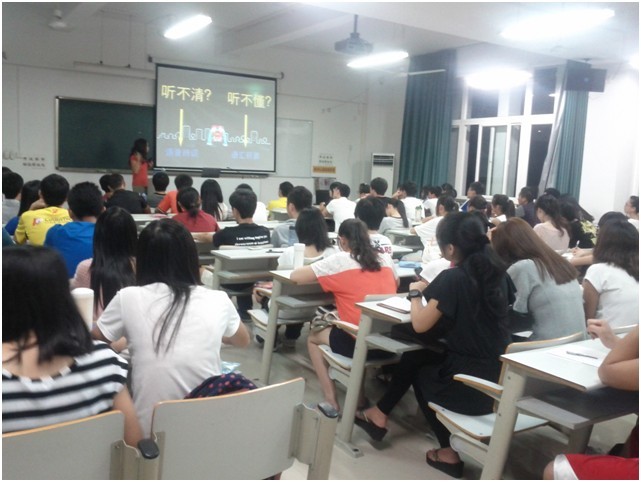 返回
教育头条
返回
教育头条

大学英语四级长篇阅读练习题分享 英语四六级
小编为备考的同学们整理了英语四级长篇阅读练习题,希望可以为大家带来帮助,一起来练习一下吧。
Section B Directions: In this section, you are going to read a passage with ten statements attached to it. Each statement contains information given in one of the paragraphs. Identify the paragraph from which the information is derived. You may choose a paragraph more than once. Each paragraph is marked with a letter. Answer the questions by marking the corresponding letter on Answer Sheet 2.
Robot Management A. Robots have been the stuff of science fiction for so long that it is surprisingly hard to see them as the stuff of management fact. A Czech playwright, Karel Capek, gave them their name in 1920 (from the Slavonic word for "work" ). An American writer, Isaac Asimov, confronted them with their most memorable dilemmas. Hollywood turned them into superheroes and supervillains. When some film critics drew up lists of Hollywood's 50 greatest good guys and 50 greatest baddies, the only character to appear on both lists was a robot, the Terminator. B. It is time for management thinkers to catch up with science-fiction writers. Robots have been doing auxiliary jobs on production lines since the 1960s. The world already has more than lm industrial robots. There is now an acceleration in the rates at which they are becoming both cleverer and cheaper: an explosive combination. Robots are learning to interact with the world around them. Their ability to see things is getting ever closer to that of humans, as is their capacity to ingest information and act on it. Tomorrow's robots will increasingly take on delicate, complex tasks. And instead of being imprisoned in cages to stop them colliding with people, they will be free to wander. C. America's armed forces have blazed a trail here. They now have no fewer than

12,000 robots serving in their ranks. Peter Singer, of the Brookings Institution, a think-tank (智囊团), says mankind's 5,000-year monopoly on the fighting of war is breaking down. Recent additions to the battlefield include tiny "insects" that perform reconnaissance (侦查) missions and giant "dogs" to terrify enemies. The Pentagon is also working on the EATR, a robot that fuels itself by eating whatever biomass (生物量) it finds around it. D. But the civilian world cannot be far behind. Who better to clean sewers or suck up nuclear waste than these remarkable machines? The Japanese have made surprisingly little use of robots to clear up after the recent earthquake, given their world leadership in this area. They say that they had the wrong sort of robots in the wrong places. But they have issued a global call for robotic assistance and are likely to put more robots to work shortly.
Section B Directions: In this section, you are going to read a passage with ten statements attached to it. Each statement contains information given in one of the paragraphs. Identify the paragraph from which the information is derived. You may choose a paragraph more than once. Each paragraph is marked with a letter. Answer the questions by marking the corresponding letter on Answer Sheet 2.
Robot Management A. Robots have been the stuff of science fiction for so long that it is surprisingly hard to see them as the stuff of management fact. A Czech playwright, Karel Capek, gave them their name in 1920 (from the Slavonic word for "work" ). An American writer, Isaac Asimov, confronted them with their most memorable dilemmas. Hollywood turned them into superheroes and supervillains. When some film critics drew up lists of Hollywood's 50 greatest good guys and 50 greatest baddies, the only character to appear on both lists was a robot, the Terminator. B. It is time for management thinkers to catch up with science-fiction writers. Robots have been doing auxiliary jobs on production lines since the 1960s. The world already has more than lm industrial robots. There is now an acceleration in the rates at which they are becoming both cleverer and cheaper: an explosive combination. Robots are learning to interact with the world around them. Their ability to see things is getting ever closer to that of humans, as is their capacity to ingest information and act on it. Tomorrow's robots will increasingly take on delicate, complex tasks. And instead of being imprisoned in cages to stop them colliding with people, they will be free to wander. C. America's armed forces have blazed a trail here. They now have no fewer than

12,000 robots serving in their ranks. Peter Singer, of the Brookings Institution, a think-tank (智囊团), says mankind's 5,000-year monopoly on the fighting of war is breaking down. Recent additions to the battlefield include tiny "insects" that perform reconnaissance (侦查) missions and giant "dogs" to terrify enemies. The Pentagon is also working on the EATR, a robot that fuels itself by eating whatever biomass (生物量) it finds around it. D. But the civilian world cannot be far behind. Who better to clean sewers or suck up nuclear waste than these remarkable machines? The Japanese have made surprisingly little use of robots to clear up after the recent earthquake, given their world leadership in this area. They say that they had the wrong sort of robots in the wrong places. But they have issued a global call for robotic assistance and are likely to put more robots to work shortly.
上述就是教育宝头条介绍的完整信息,想要查看更多的四级六级考试资讯,敬请关注我的微信18560125702,还可免费获取学习攻略哦!返回教育宝头条
【免责声明】本文仅代表作者本人观点,与教育宝无关。教育宝对文中陈述、观点判断保持中立,不对所包含内容的准确性、可靠性或完整性提供任何保证。请读者仅作参考,特此声明!





